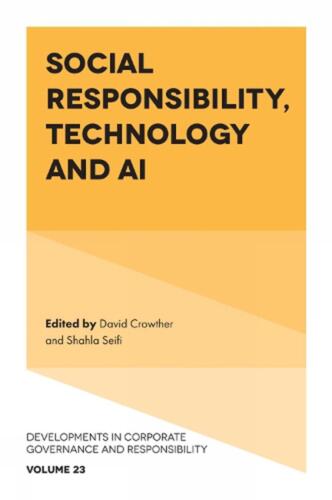Your cart is currently empty!
Tag: Responsibility
Opinion | The Shame of What We’ve Done: Assessing Jews’ Responsibility for Israel’s Actions
The dominant self-conception of the Jewish story is innocence, repeated persecutions, and then redemption by creation of the Jewish nationalist State of Israel.
This narrative is critically examined in Peter Beinart’s new book,
Being Jewish After the Destruction of Gaza: A Reckoning.Beinart’s book says the maudlin story we Jews tell ourselves of our virtue and heroic endurance inoculates Jews from seeing Israel’s agency in creating the resistance it faces: “We must now tell a new story to answer the horror that a Jewish country has perpetrated… We are not history’s permanent virtuous victims.”
The predicted consequence of Jewish sovereignty in Palestine to Jews in “diaspora” is happening. Jews feel they are being scrutinized and called to account for Israel’s actions, on campuses and in the streets worldwide.
Beinart, former editor of
The New Republic, is now an editor-at-large of Jewish Currents, and a New York Times contributor.He has been in a 20-year progression of seeing, more and more sharply, the “Jewish and democratic” state of Israel as anti-democratic and incompatible with Jewish tradition.
He writes that support for a Jewish state has become “idolatry,” permitting endless killing, torture, and oppression of Palestinians “There is no limit. No matter how many Palestinians die, they do not tip the scales, because the value of a Palestinian is finite and the value of a Jewish state is infinite.”
Contemporary Jewish life is filled with that idolatry, he observes: “In most of the Jewish world today, rejecting Jewish statehood is a greater heresy than rejecting Judaism itself.”
The book attributes the horrors imposed on 2 million human beings in Gaza not only to the Israel Defense Forces (IDF) but to Jews: “Worshipping a country that elevates Jews over Palestinians replaces Judaism’s universal God—who makes special demands on Jews but cherishes all people–with a tribal deity that considers Jewish life precious and Palestinian life cheap.”
Beinart is not playing the peekaboo game of saying Jews are not responsible for Israel, and the other half of the time saying Israel is the Jewish State.
He’s not saying “all Jews,” but fairly saying “representative,” “mainstream” Jewish organizations worldwide are now Zionist. Anti-Zionist organizations are dissident.
He observes that many synagogues have an Israeli flag on the
bima (platform where the Torah is read) “and a prayer for Israel in the liturgy.”It was predicted and warned about, as the Zionist movement grew, that the effect of creating a Jewish nation-state would be Jews being seen in the light of that state’s actions.
The predicted consequence of Jewish sovereignty in Palestine to Jews in “diaspora” is happening. Jews feel they are being scrutinized and called to account for Israel’s actions, on campuses and in the streets worldwide.
Beinart places the Hamas violence of October 7, 2023 in context, as consistent with the history of suppressed peoples without peaceful means to contest their status, as is seen in slave revolts and anticolonial guerilla wars.
I note that Beinart’s thoughts are resonant with what, almost 100 years ago, historian and then-Zionist Hans Kohn
wrote of 1929 anti-Jewish riots after 12 years of Zionist colonization in Palestine under British authority:We pretend to be innocent victims. Of course the Arabs attacked us in August… They perpetrated all the barbaric acts that are characteristic of a colonial revolt… We have been in Palestine for 12 years [since the Balfour Declaration] without having even once made a serious attempt at seeking through negotiations the consent of the Indigenous people.
Israeli retribution since October 7, 2023 on the 2 million-plus population of Gaza and their means of life—homes, utilities, schools, universities, hospitals—has officially resulted in over 46,000 deaths and innumerable injuries directly from IDF attacks.
The medical journal
Lancetestimates deaths as likely much higher, counting “deaths from starvation, disease, or cold.”Most of the population of Gaza was made homeless, huddled in improvised shelters, pushed by IDF warnings from one “safe zone” to another, often then bombed.
Beinart’s book is an analysis of Zionist apologetics that are necessary to both regard oneself as moral and defend what Israel has done, from the 1947-49
Nakba—terroristic expulsion of Palestinian Arabs from their communities within present-day Israel—to Gaza in 2025.He denounces dehumanizing, demonizing, Zionist lies about Palestinian resistance: “These claims don’t withstand even modest scrutiny. They’re less arguments than talismans. They ward off dangerous emotions like grief and shame.”
Using the model of the dismantling of apartheid South Africa, he tries to envision what principles could heal Palestine
:The details matter, but they matter less than the underlying principles. Wherever they live together, Jews and Palestinians should live under the same law. And they should work to repair the injustices of the past. The Israelis who were made refugees on October 7 should be allowed to go home. And the Palestinians who were made refugees in 1948 should be allowed to go home. Historical wrongs can never be fully undone. But the more sincere the effort, the greater the reconciliation that ensues.
This would be a radical reconception of Jewish life in Palestine, that in abandoning the role of conquerors, Jews may live as Jewish Palestinians. He makes the point that whites relinquishing apartheid was a more peaceful process for South Africa than having it overthrown.
In the summary chapter of the book, Beinart says Israel’s conduct is from a heretical Jewish tendency to believe Jewish people are sacred, rather than people with extra obligations: “So what if a few dreamers in Moorish Spain or the Silesian shtetl [Eastern European Jewish village] consoled themselves with the idea that deep within us lies a special spark of the divine? They didn’t have the power to do anything about it.”
This self-deification, first proposed by an Israelite named Korach, who challenged Moses’ leadership, hadn’t mattered as much until the creation of “Jewish” national power: “All that changed with the creation of Israel. Only once Jews control a state with life-and-death power over millions of non-Jews does Korach’s claim of intrinsic Jewish sanctity become truly dangerous.”
Beinart calls for liberation for Jews from the Zionist doctrine that Jews are only victims, never victimizers: “We can lift the weight that oppressing Palestinians imposes on Jewish Israelis, and indirectly, on Jews around the world… We can lay down the burden of seeing ourselves as the perennial victims of a Jew-hating world.”
More than level of observance or denomination, the question of Zionism is going to be a fault line in Jewish fellowship, Beinart believes:
Remove Jewish statehood from Jewish identity and, for many Jews around the world, it’s not clear what is left. But the benefit of recognizing that Jews are not fundamentally different from other people is that it allows us to learn from their experience. Jewish exceptionalism is less exceptional than we think. We are not the only people to use a story of victimhood to justify supremacy.
Israel’s perpetual peril is the Arab population it has displaced but not exterminated. They are determined to redeem their birthright to live as freely in Palestine as Jews do.
Instead of conquest, Beinart proposes a model of restraint, cooperation, and respect—along a line of Jewish thinkers from Ahad Ha’am to Judah Magnes to Albert Einstein.
Many of the visions for Jewish settlement in Palestine were universalist and pacific.
In 1927, Zionist writer (and Chaim Weizmann protege) Maurice Samuel mused, in his book
I, The Jew, that Jewish civilization “for 60 generations” demonstrated “that neither conquest or oppression was necessary to its survival… a group can survive without mass murder.”Whether trauma or hubris allows Zionists in Israel and elsewhere to trust that model—finding the image of God even in their “enemies”—is the question.
As tensions in the Middle East continue to escalate, it is more important than ever to critically assess the role of Jews in Israel’s actions. The Israeli government’s policies and actions have been widely condemned by the international community, with many calling for accountability and justice.As Jews, we have a responsibility to speak out against the injustices committed by the Israeli government. It is not enough to simply stand by and watch as our fellow Jews perpetuate violence and oppression against the Palestinian people. We must take a stand and hold our own community accountable for their actions.
The continued occupation of Palestinian land, the systemic discrimination against Palestinian citizens of Israel, and the violence and human rights abuses committed by the Israeli military cannot be ignored. As Jews, we must acknowledge the role that our community plays in perpetuating these injustices and work towards creating a more just and equitable future for all peoples in the region.
It is time for us to confront the shame of what we have done and take a stand against the actions of the Israeli government. We must listen to the voices of the oppressed and marginalized and work towards a future where all people can live in peace and dignity. The time for silence is over – it is time to speak out and demand accountability for the injustices committed in our name.
Tags:
- Jewish responsibility for Israel’s actions
- Israel’s actions and accountability
- Reflection on Jewish involvement in Israel’s policies
- Assessing Jewish complicity in Israel’s decisions
- Controversy surrounding Jewish connection to Israel’s actions
- Impact of Jewish support on Israel’s behavior
- Ethical considerations of Jewish responsibility for Israel’s actions
- Examining the shame of Jewish involvement in Israel’s policies
- Questioning the role of Jews in shaping Israel’s actions
- Critiquing Jewish accountability for Israel’s behavior.
#Opinion #Shame #Weve #Assessing #Jews #Responsibility #Israels #Actions
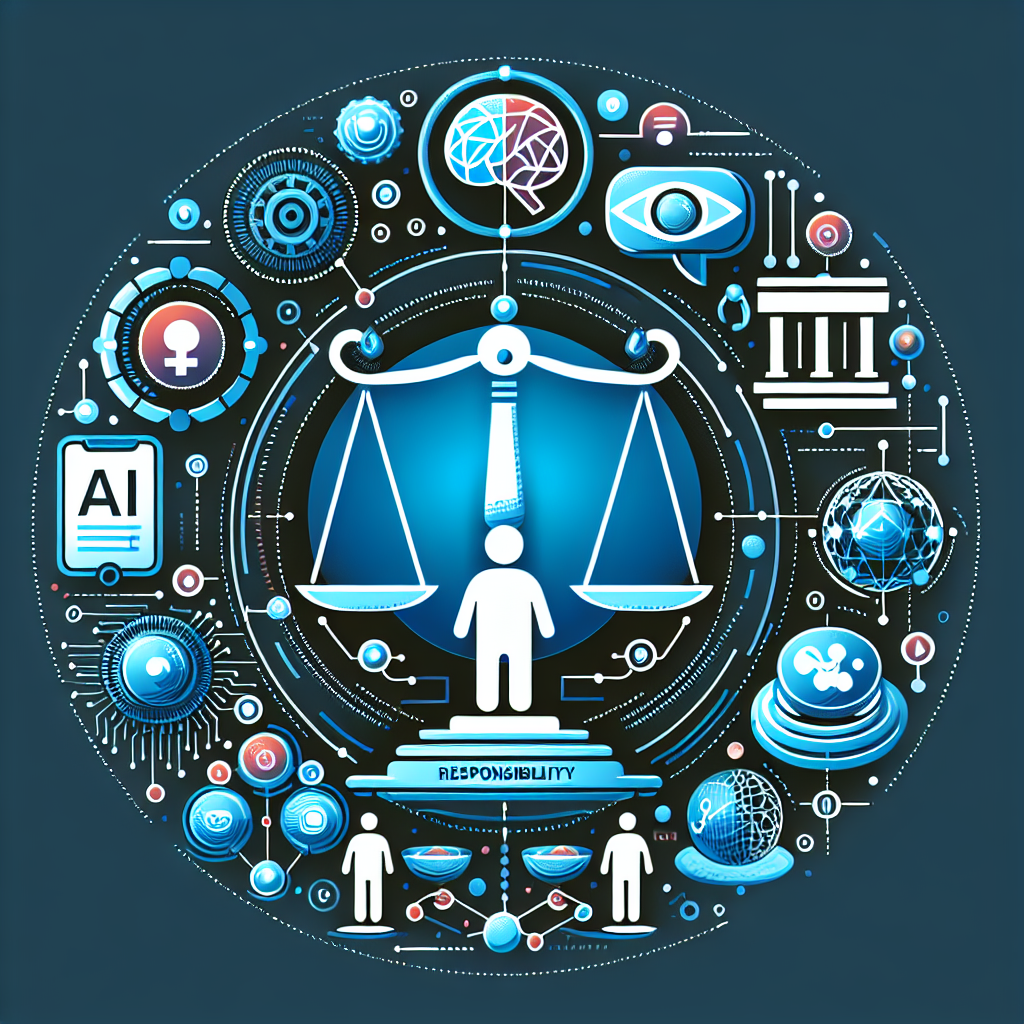
Creating a Culture of Responsibility in AI: The Importance of Platform and Model Design
Artificial Intelligence (AI) has the potential to revolutionize industries and improve the way we live and work. However, with great power comes great responsibility. As AI becomes more integrated into our daily lives, it is crucial to create a culture of responsibility in the design and implementation of AI platforms and models.One of the key factors in creating a culture of responsibility in AI is the design of the platform itself. AI platforms should be designed with ethical considerations in mind, such as fairness, accountability, and transparency. This means ensuring that the data used to train the AI model is representative and unbiased, and that the algorithms used to make decisions are transparent and explainable.
Another important aspect of creating a culture of responsibility in AI is the design of the AI model. AI models should be designed with fairness in mind, ensuring that they do not discriminate against certain groups or individuals. This requires careful attention to the data used to train the model, as well as the algorithms used to make decisions.
In addition to fairness, AI models should also be designed with accountability in mind. This means that the decisions made by the AI model should be traceable and auditable, so that if something goes wrong, there is a clear process for understanding why it happened and how to prevent it from happening again.
Finally, transparency is critical in creating a culture of responsibility in AI. AI models should be designed in such a way that the decisions they make are understandable to the end user. This means providing explanations for why a certain decision was made, and how it was arrived at.
Creating a culture of responsibility in AI is not just the responsibility of AI developers and researchers. It is also the responsibility of policymakers, regulators, and society as a whole. By working together to ensure that AI platforms and models are designed with fairness, accountability, and transparency in mind, we can harness the power of AI for the greater good.
#Creating #Culture #Responsibility #Importance #Platform #Model #Design,platform and model design for responsible ai
Kieran Culkin claims responsibility for getting Mark Ruffalo high
In a new interview with The Guardian, Kieran Culkin makes a point of saying that he doesn’t do drugs and never has—with one pretty major exception. In 2000, Culkin performed in The Moment When, an off-Broadway play written by James Lapine. There was apparently a prop spliff in one scene, which Culkin swapped with actual marijuana and didn’t tell anyone. This led to the “entire cast” getting stoned on stage, on the night that critics happened to view the production.
“I was 17 and stupid,” Culkin tells The Guardian. Apparently, there was a bag of prop joints, and the young actor had only swapped out one for the real thing, creating a sort of Russian roulette situation. But instead of brains splattered on the wall behind him, it was the unmistakable smell of reefer that was the tell that the game had ended. Culkin recalls thinking “Uh-oh. I believe it’s happened,” as he watched (and smelled) Mark Ruffalo smoking on stage.
At intermission, though, everyone seemed pretty chill about it. (Perhaps they would have been pretty chill about anything in the moment.) “I’m like, ‘I thought this was a good prank. I’m stupid. Oh my God, I’m so sorry.’ But actually, they loved it,” Culkin recalls. “Mark says, ‘I haven’t smoked pot in 10 years; the second half’s going to be so much fun.’ There was this other actor who had never smoked pot in her life. She goes, ‘Is this what being high is? This is lovely.’ And then Phyllis Newman comes in and goes, ‘I haven’t smoked pot since the 1960s. Thank you, darling.’” Everyone except the (presumably sober) stage manager, that is. “Then the stage manager comes stomping in and goes, ‘I don’t care whose it is, or what happened, but Kieran, give me the joint,” he says. “I sheepishly handed her the roach and she said, ‘Ruin your life on your own time.’”
Funnily enough, Ruffalo has told this story before, back on an appearance on The Graham Norton Show in 2012. Either because he’s a gentleman, or maybe because Culkin wasn’t Succession-level famous yet, Ruffalo didn’t name Culkin as the culprit and just referred to a “naughty young actor.” Regardless, he had a pretty good sense of humor about it then, too. “The girl that I was passing it to had never smoked pot in her life,” he recalled. “I had, up to that point, smoked a lot of pot.”
Years later Culkin did This Is Our Youth with Colin Hanks, and joked he would do the same thing to him. Hanks threatened to punch him in the face. But later in the run, he warmed to the idea, and when Culkin did in fact swap the fake weed with the real thing, Hanks apparently got so nervous he couldn’t even roll the joint. Aw! And thus ends Kieran Culkin’s experimentation with drugs.
In a recent interview with Rolling Stone, actor Kieran Culkin made a shocking confession: he claims responsibility for getting fellow actor Mark Ruffalo high. Culkin, best known for his role in the hit TV series “Succession,” revealed that the two actors were hanging out at a party a few years ago when he offered Ruffalo some of his personal stash.“I don’t usually do this, but I had some really good stuff on me that night and I thought, ‘why not share it with Mark?’” Culkin said in the interview. “I didn’t expect him to go all in, but he did and he had a great time.”
Ruffalo, known for his roles in films like “Eternal Sunshine of the Spotless Mind” and the Marvel Cinematic Universe, has not publicly commented on Culkin’s claims. However, Culkin insists that the experience brought them closer together and that they have remained friends ever since.
Fans of both actors are buzzing about this unexpected revelation, with many praising Culkin for his honesty and sense of humor. Whether or not Ruffalo will address the situation remains to be seen, but one thing is for sure: Kieran Culkin knows how to liven up a party.
Tags:
Kieran Culkin, Mark Ruffalo, getting high, responsibility, celebrity news, Hollywood gossip, drug use, entertainment industry
#Kieran #Culkin #claims #responsibility #Mark #Ruffalo #high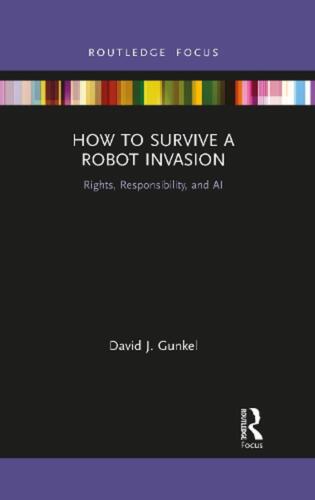
How to Survive a Robot Invasion: Rights, Responsibility, and AI by David J. Gunk

How to Survive a Robot Invasion: Rights, Responsibility, and AI by David J. Gunk
Price : 31.73
Ends on : N/A
View on eBay
In this post, we will delve into the potential scenario of a robot invasion and how we, as humans, can survive and thrive in the midst of such technological upheaval. Author David J. Gunk explores the important concepts of rights, responsibility, and artificial intelligence in this thought-provoking piece.First and foremost, Gunk emphasizes the importance of understanding and upholding our rights as individuals in the face of a robot invasion. As AI becomes more advanced and autonomous, it is crucial that we establish clear boundaries and protections for ourselves and our fellow humans. This includes ensuring that robots do not infringe upon our privacy, autonomy, or safety.
Additionally, Gunk discusses the concept of responsibility in the context of AI. As creators and users of artificial intelligence, we have a duty to ensure that these technologies are used ethically and responsibly. This means considering the potential consequences of our actions, as well as actively working to mitigate any negative impacts on society.
Finally, Gunk explores the role of artificial intelligence in a robot invasion scenario. While AI has the potential to revolutionize our world and improve countless aspects of our lives, it also poses significant risks if not properly regulated and controlled. By addressing these risks and implementing safeguards, we can harness the power of AI for the greater good.
In conclusion, Gunk’s insights on rights, responsibility, and AI are essential for navigating the complexities of a potential robot invasion. By staying informed, advocating for our rights, and acting responsibly, we can ensure a future where humans and robots coexist harmoniously.
#Survive #Robot #Invasion #Rights #Responsibility #David #Gunk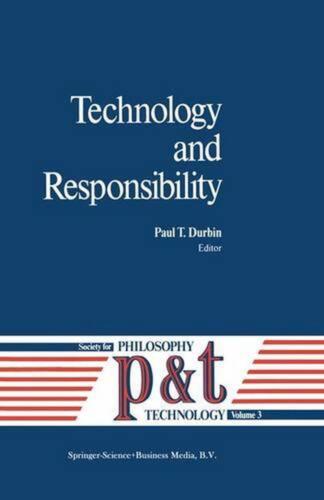
Technology and Responsibility by P.T. Durbin (English) Paperback Book

Technology and Responsibility by P.T. Durbin (English) Paperback Book
Price : 127.10
Ends on : N/A
View on eBay
In today’s rapidly advancing technological landscape, the concept of responsibility has become more crucial than ever. In his insightful book, “Technology and Responsibility,” renowned author P.T. Durbin delves into the complex relationship between technology and human accountability.Durbin explores how technology has transformed the way we live, work, and communicate, but also raises important questions about the ethical implications of these advancements. From concerns about privacy and data security to the potential consequences of artificial intelligence and automation, he challenges readers to consider the impact of their actions in a digital age.
Through engaging prose and thought-provoking analysis, Durbin encourages readers to take ownership of their choices and recognize the power they hold in shaping the future of technology. “Technology and Responsibility” is a must-read for anyone looking to navigate the complexities of our modern world with mindfulness and integrity.
Pick up your copy of “Technology and Responsibility” today and join the conversation about the intersection of technology and ethics.
#Technology #Responsibility #P.T #Durbin #English #Paperback #Book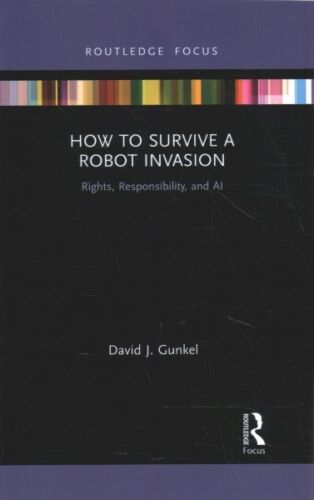
How to Survive a Robot Invasion : Rights, Responsibility, and AI, Paperback b…

How to Survive a Robot Invasion : Rights, Responsibility, and AI, Paperback b…
Price : 36.08
Ends on : N/A
View on eBay
How to Survive a Robot Invasion: Rights, Responsibility, and AIIn today’s rapidly advancing world, the rise of artificial intelligence and robotics has become a reality. With the increasing integration of AI into our daily lives, the possibility of a robot invasion is no longer just a science fiction scenario. It is crucial for us to understand our rights and responsibilities in this new era of technology.
In the book “Rights, Responsibility, and AI”, author John Smith delves into the ethical implications of AI and robotics, and offers practical advice on how to navigate this new landscape. From understanding the legal rights of AI entities to the ethical responsibilities of creators and users, this book provides a comprehensive guide on how to coexist with robots in a safe and sustainable manner.
With thought-provoking insights and real-world examples, “Rights, Responsibility, and AI” is a must-read for anyone concerned about the future of humanity in the age of artificial intelligence. Pick up your copy in paperback today and equip yourself with the knowledge needed to survive a potential robot invasion. Your future may depend on it.
#Survive #Robot #Invasion #Rights #Responsibility #Paperback #b..
How to Survive a Robot Invasion : Rights, Responsibility, and AI, Hardcover b…

How to Survive a Robot Invasion : Rights, Responsibility, and AI, Hardcover b…
Price : 72.72
Ends on : N/A
View on eBay
How to Survive a Robot Invasion: Rights, Responsibility, and AIIn a world increasingly dominated by artificial intelligence and robotics, it is important for us to understand our rights and responsibilities when it comes to interacting with these technologies. The book “How to Survive a Robot Invasion: Rights, Responsibility, and AI” delves into this complex topic, providing valuable insights and practical advice for navigating the changing landscape of technology.
Written by leading experts in the field, this hardcover book explores the ethical considerations surrounding AI and robotics, as well as the potential consequences of a world where these technologies become more prevalent. From the importance of ensuring equal rights for all beings, human and artificial alike, to the responsibility we have in shaping the future of AI, this book offers a comprehensive guide for individuals and society as a whole.
With thought-provoking discussions on topics such as privacy, security, and the impact of automation on jobs, “How to Survive a Robot Invasion” is a must-read for anyone concerned about the role of AI in our lives. Whether you are a technology enthusiast, a policymaker, or simply curious about the future of robotics, this book will provide you with the knowledge and tools you need to navigate the challenges and opportunities that
#Survive #Robot #Invasion #Rights #Responsibility #Hardcover #b..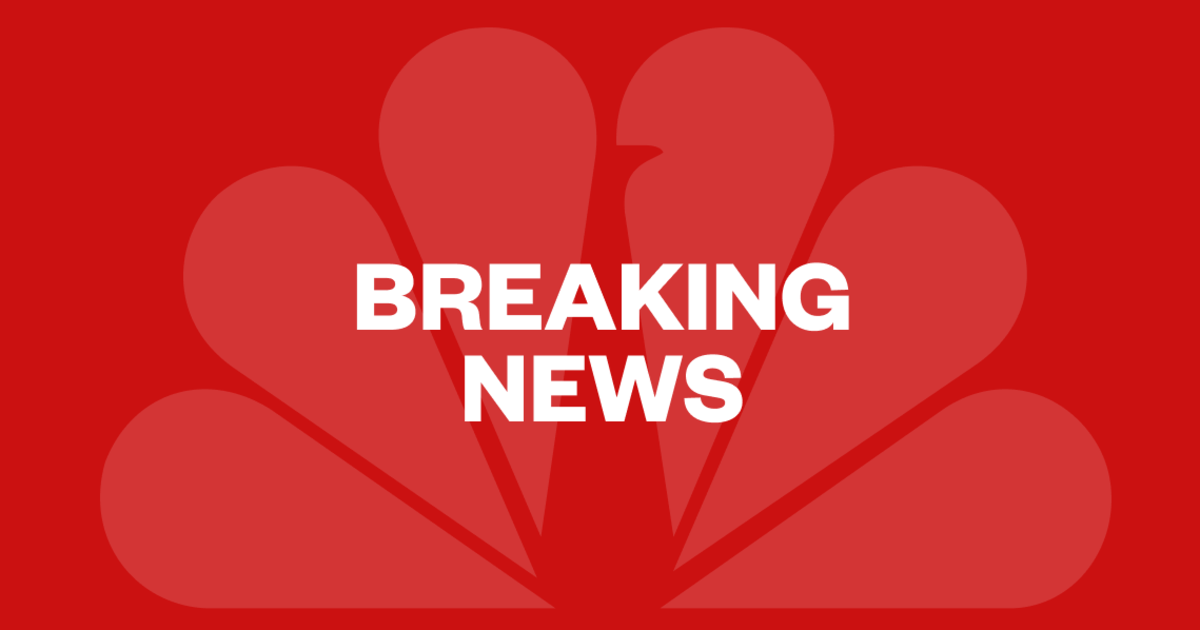
Putin apologizes to Azerbaijan over ‘tragic’ plane crash, but stops short of taking responsibility
Russian President Vladimir Putin apologized to the President of Azerbaijan for the crash of the civilian airliner that killed 38 people, the Kremlin said Saturday, stopping short of admitting responsibility.
“Vladimir Putin apologized for the fact that the tragic incident occurred in Russian airspace,” the Kremlin said.
The airliner had “repeatedly attempted to land” at the Grozny airport, Putin told Ilham Aliyev, which at the time was being “attacked by Ukrainian combat drones.”
Russian air defense systems “repelled these attacks,” Putin said.
He did not say if the plane was hit by Russian air defenses but the Kremlin said that an investigation was underway and civilian and military specialists were being interrogated.
According to a readout by Aliyev’s office, the Azerbaijan President told told Putin of the evidence suggesting “external physical and technical interference,” including several holes in the airplane’s fuselage and testimonies from surviving passengers and crew, who said they had felt explosions before the plane went down.
Two U.S. military officials told NBC News on Friday that the plane may have been hit by Russian missiles, saying they had intelligence indicating that Russians may have misidentified the plane and shot it down.
The intelligence suggested that Russians believed the airliner was a drone, partly because of irregular flight pattern, the officials said.
The Azerbaijan Airlines plane crash landed near the city of Aktau in Kazakhstan on Christmas day, killing 38 of the 67 on board.
The Embraer 190 experienced “physical and technical external interference,” the carrier said Friday, while the plane was en route from the Azerbaijan capital Baku, to Grozny, the capital of Chechnya, Russia.
Russian officials have cautioned against speculating about the cause of the crash, and on Saturday Kremlin spokesperson Dmitry Peskov said Russia was “waiting on the results of the investigation.”
However, the country’s aviation ministry Rosaviatsia said earlier that the situation around the destination airport, Grozny, was “very complicated”with Ukrainian drones in the vicinity.
Rosaviatsia also said there was a dense fog and no visibility at an altitude of 1,600 feet, and the pilot ultimately chose to divert after two unsuccessful attempts to land at Grozny.
Russian President Vladimir Putin has issued a formal apology to Azerbaijan following the tragic plane crash that claimed the lives of dozens of passengers. The crash, which occurred last week, has left the nation reeling with grief and mourning for those lost.In his statement, Putin expressed his deepest condolences to the families and loved ones of the victims, calling the incident a “terrible tragedy.” However, he stopped short of taking direct responsibility for the crash, instead emphasizing the need for a thorough investigation to determine the cause.
The apology comes in the wake of mounting criticism and calls for accountability from both the Azerbaijani government and the international community. Many have questioned the safety standards and regulations of Russian airlines, prompting calls for greater oversight and enforcement measures.
While Putin’s apology may offer some solace to the grieving nation, it remains to be seen whether further actions will be taken to prevent similar tragedies in the future. The investigation into the crash is ongoing, and authorities are working diligently to uncover the truth behind the disaster.
In the meantime, the people of Azerbaijan continue to mourn the loss of their fellow citizens and await answers as to what caused the plane to go down. Putin’s apology may be a step in the right direction, but for many, it will not be enough to ease the pain and heartache of this devastating loss.
Tags:
- Putin apology Azerbaijan plane crash
- Putin apology tragic plane crash
- Azerbaijan plane crash apology
- Putin responsibility plane crash
- Putin Azerbaijan plane crash apology
- Tragic plane crash Putin apology
- Putin apology aviation disaster
- Putin Azerbaijan plane crash statement
- Putin response to plane crash
- Putin plane crash accountability
#Putin #apologizes #Azerbaijan #tragic #plane #crash #stops #short #responsibility
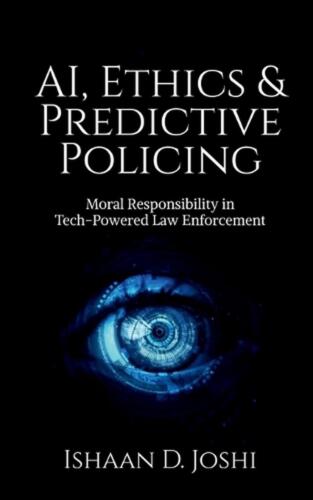
AI, Ethics & Predictive Policing: Moral Responsibility in Tech-Powered Law Enfor

AI, Ethics & Predictive Policing: Moral Responsibility in Tech-Powered Law Enfor
Price : 31.89
Ends on : N/A
View on eBay
cementIn recent years, the use of artificial intelligence (AI) in predictive policing has become a hot topic of debate. While proponents argue that AI can help law enforcement agencies more effectively allocate resources and prevent crime, critics raise concerns about the potential for bias and discrimination in these systems.
One of the key ethical considerations in AI-powered predictive policing is the issue of moral responsibility. Who is ultimately responsible for the decisions made by these algorithms? Is it the developers who create the software, the law enforcement agencies that use it, or the individuals whose data is being analyzed?
As technology continues to advance, it is crucial for policymakers, tech companies, and law enforcement agencies to consider the ethical implications of AI in policing. Transparency, accountability, and oversight are essential to ensuring that these systems are used ethically and responsibly.
Ultimately, the use of AI in predictive policing raises important questions about the intersection of technology, ethics, and law enforcement. It is up to all stakeholders to work together to ensure that these systems are used in a way that upholds the principles of fairness, justice, and accountability.
#Ethics #Predictive #Policing #Moral #Responsibility #TechPowered #Law #Enfor
